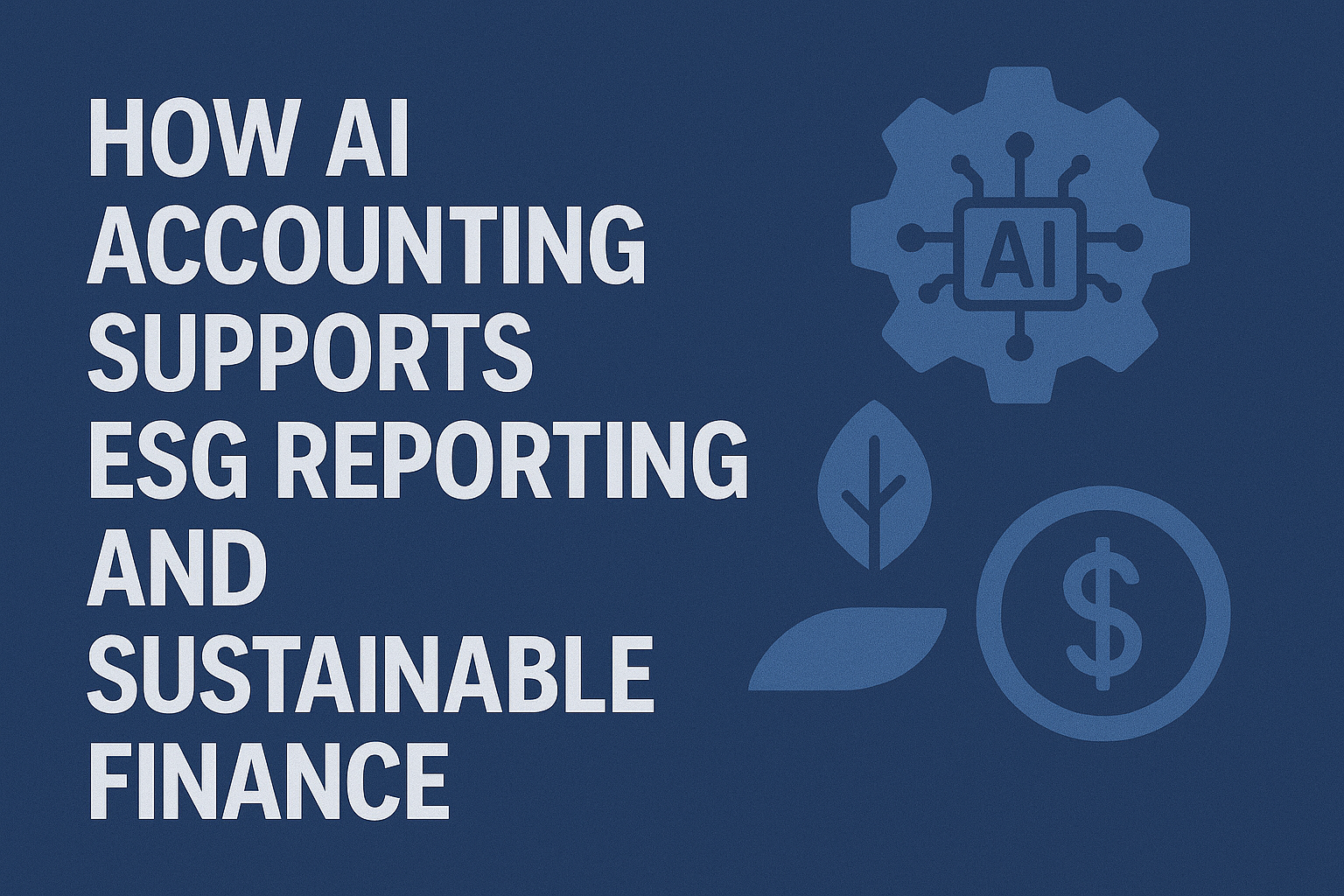
In the past, accounting was seen purely as a financial function — tracking profits, losses, and compliance.
Today, that definition is expanding. Businesses are increasingly judged not just by what they earn, but by how responsibly they operate.
This is the age of ESG (Environmental, Social, and Governance) — and finance teams are at the heart of it.
Yet for many small and medium-sized enterprises (SMEs), collecting, organizing, and reporting ESG data remains a daunting task.
That’s where AI accounting is emerging as a powerful ally — simplifying ESG reporting, improving transparency, and helping businesses transition toward sustainable finance.
Let’s explore how platforms like ccMonet are making this shift both practical and accessible.
Traditional accounting measures economic performance.
ESG reporting adds new dimensions — energy use, carbon footprint, diversity metrics, community impact, and corporate governance.
However, these data points often live outside standard financial systems — scattered across departments, spreadsheets, and manual reports.
AI accounting bridges that gap.
By integrating financial and non-financial data in real time, platforms like ccMonet allow businesses to measure the environmental and social impact of their operations directly alongside financial results.
This integrated view makes ESG reporting not just a compliance task, but a natural extension of everyday accounting.
One of the biggest challenges in sustainability reporting is data collection.
Tracking energy usage, vendor sustainability, or waste reduction manually can be time-intensive and error-prone.
AI simplifies this by automating how data is gathered and classified.
With intelligent document processing, ccMonet can extract relevant data from invoices, supplier receipts, and expense claims — such as paper usage, travel emissions, or sourcing patterns.
This means SMEs can automatically capture sustainability-relevant information from routine financial transactions — turning everyday bookkeeping into a live ESG data feed.
Sustainability isn’t just about internal efficiency — it’s about accountability across the entire value chain.
Businesses increasingly need to assess the ESG performance of their suppliers and partners.
AI accounting systems help by recognizing vendor details and cross-referencing them against sustainability criteria or certifications.
For example, ccMonet can track whether a vendor consistently aligns with green procurement policies or identify high-carbon suppliers based on purchase records.
This insight allows companies to make informed, responsible sourcing decisions — while maintaining operational efficiency and compliance.
ESG is as much about governance as it is about the environment or society.
That means ensuring accurate, timely, and transparent data across the organization.
AI accounting strengthens governance by:
With ccMonet’s AI + expert verification model, SMEs gain both automation and assurance — creating an accountable system that regulators, investors, and stakeholders can trust.
As financial institutions and investors increasingly prioritize sustainability, access to accurate ESG data is becoming a key factor in financing decisions.
AI-powered accounting platforms help SMEs meet this expectation by ensuring their sustainability data is measurable, verifiable, and investor-ready.
With transparent reporting and real-time analytics, ccMonet enables businesses to:
This bridges the gap between sustainability performance and financial opportunity — turning ESG compliance into a strategic advantage.
AI accounting isn’t just about reporting sustainability — it practices it.
By digitizing receipts, automating processes, and eliminating physical paperwork, businesses reduce their operational footprint.
ccMonet’s fully paperless workflow cuts waste, saves energy, and improves efficiency — aligning financial transformation with environmental responsibility.
In this way, AI accounting directly supports the “E” in ESG — helping organizations go digital and go green.
ESG reporting is no longer optional — it’s becoming a global business standard.
But for SMEs, the challenge lies in managing this complexity without adding cost or workload.
AI accounting offers the solution:
Real-time data. Automated insights. Transparent governance.
With platforms like ccMonet, sustainability reporting becomes as seamless as financial management — efficient, accurate, and future-ready.
From everyday bookkeeping to ESG transparency, ccMonet helps businesses connect financial accuracy with sustainability accountability.
👉 Discover how ccMonet empowers SMEs to automate ESG reporting, enhance transparency, and lead the transition toward responsible, data-driven finance.